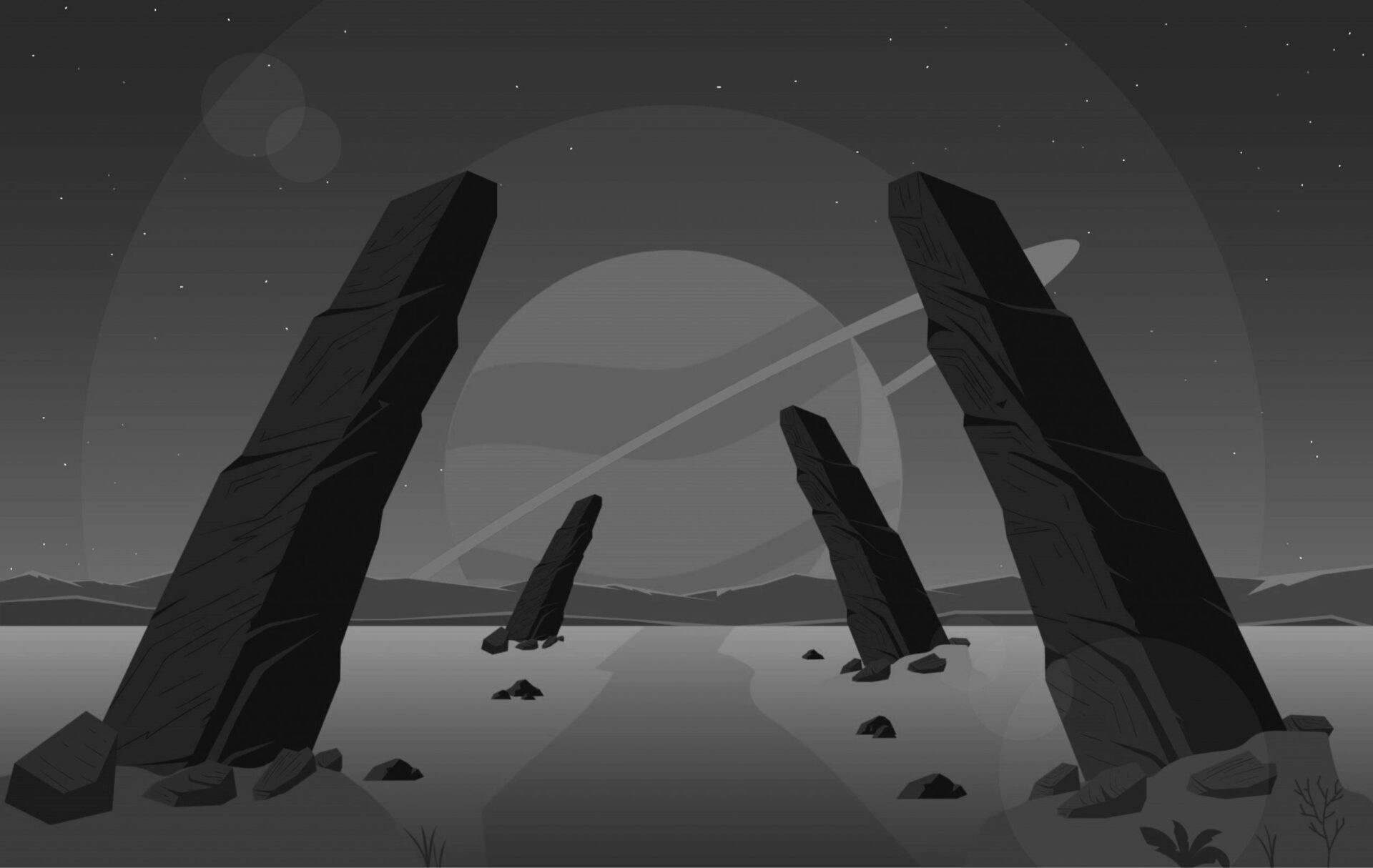The scope of Exocosm was originally scientific worldbuilding and speculative evolution. This work resides within a universe called Exordium that aims to be a realistic extrapolation of the real world into the future. However, like many people, I have always been interested in both fantasy and science fiction. As a break from technical articles on gasbags I thought I would explain why I want to add fantasy worldbuilding and a fantasy world called Paracosm to this blog too.
One of the purposes of this blog is to help me focus the thoughts swirling around in my head and write them down. I had originally decided to focus on a scientific approach as that was my area of expertise from my career as a physicist. This fit well with science fiction worldbuilding but it ignored the fantasy fiction which I equally enjoyed.
Polling
Just to scratch the itch of fantasy worldbuilding I posted a few articles on Reddit that didn’t exactly fit into science-fiction. This included flat worlds, hollow worlds and underwater civilisations. These gained a lot of upvotes and awards, so clearly people were interested. I then set up a Reddit poll with the following results:
Can scientific and fantastical world-building coexist on the same blog?
That’s almost unanimous so it seemed clear that adding fantasy worldbuilding to Exocosm would be a popular option. Interestingly, a few days ago someone created a poll asking whether the audience preferred fantasy to science fiction. It seemed fantasy was more popular by about two-to-one.
Do you prefer fantasy or science fiction?
Since a common reason for interest in fantasy worldbuilding is playing RPGs, I also wondered whether not including a specific system would be a problem. I therefore created yet another poll which suggested that
Which game system should I use to describe a fantasy world on a blog?
Analysing these results wasn’t exactly complicated psephology (or even rocket science). It seems that including fantasy topics would be perfectly acceptable. Furthermore, not including any RPG system rules wouldn’t be a significant problem among RPG fans. This means I don’t have to refer to the “world’s most popular role-playing game” (i.e. D&D).
Aim
I therefore wondered whether there was a way of fitting different fantasy worlds into an overarching setting in the same way different exoplanets can be put into a realistic universe. I decided to call this Paracosm, as that means, “A detailed imaginary world”.
Using fantasy terminology each world would probably be a plane rather than a planet. This leads to D&D Planescape, Moorcock’s Million Spheres, Magic: the Gathering or Games Workshop’s Age of Sigmar being sources of inspiration.
Could fantasy pseudo-physics be used to describe a cosmology that contains a myriad individual worlds? That seemed an interesting challenge, though one that would surely provide ample distraction.
Cosmology
It’s definitely an ongoing creative work but the basic idea at present is that the multiverse in Paracosm is constructed from two flavours of luminiferous aether and the interaction between them. This was initially inspired by the Chinese dualistic Yin/Yang philosophy though now leans heavily towards the, now defunct, fluid theory of electricity.
This theory proposed that electricity was caused by the presence or absence of two different fluids (resinous and vitreous) that flowed through all solid objects. This can then be combined with the physics of the Greek Stoics where pneuma or the breath of life flows through all matter.
Exactly how to combine this into a coherent description is an ongoing task but I imagine a chaotic swirling mixture of the two flavours of aether. This produces a backdrop for infinite worlds that form like pearls at the interface between the two. Channels of aether flowing between worlds can be used for travel, just like a boat on a river, though more likely like white water rafting!
Aether also flows within the worlds, naturally shaping them in various forms. This leads to fantasy environments that are similar to, but not the same, as those on Earth. The inhabitants can of course manipulate these flows to produce deliberate and desirable outcomes. Whether this is magic, occult sciences, psionics or Teslapunk technology is difficult to tell. Is there even a difference?

Maybe this is biting off more than I can chew but I do get distracted easily. However, the cosmological framework of Paracosm seems sufficient to discuss topics that don’t easily fit into the realistic Exordium scope.
Please do let me know what you think about this in the comments as it is difficult to find time to write articles so it’s good to know what people might be interested in.
